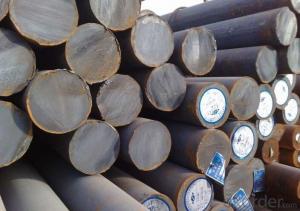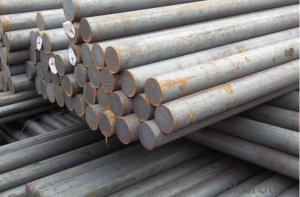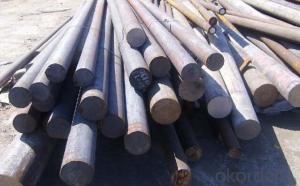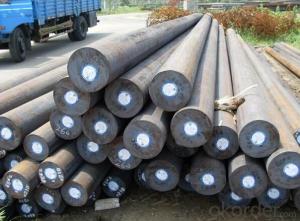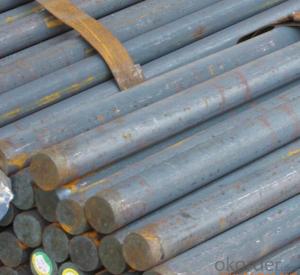DIN1.7225/SAE4140 CNBM Alloy Steel Round Bar with Low Price
- Loading Port:
- Tianjin
- Payment Terms:
- TT OR LC
- Min Order Qty:
- 3 m.t.
- Supply Capability:
- 10000 m.t./month
OKorder Service Pledge
OKorder Financial Service
You Might Also Like
Item specifice
DIN1.7225/SAE4140 Alloy Steel Round Bar Price
Name | DIN1.7225/SAE4140 Steel Round Bar |
Shape | Round Bar/Square Bar/Flat Bar/Plate/Wire |
Standard | GB/ASTM/SAE/AISI/DIN/JIS/EN/BS |
Surface Treatment: | Black/Peeling/Polished/Machined |
Delivery Condition: | Hot Rolled or Forged/Peeled or Black Surface |
Test | SGS/UT 100% Elements Testing |
Certificate: | ISO/Mill Certificate |
Service: | 24 hours online service / |
more than 20 years trading and manufacture | |
Quality Assurance: | the third party inspection, such as SGS, BV, TUV…etc. is acceptable |
Packaging Details: | seaworthy packaging or as per customer's packing instruction |
Chemical Composition
C | Si | Mn | Cr | Mo | P | S |
0.38-0.43 | 0.40max | 0.60-0.90 | 0.90-1.20 | 0.15-0.30 | ≤0.035 | ≤0.035 |
Application
4140 Alloy Steel is engineering steel supplied in quenched and tempered conditions.
Very good machinability.
High toughness.
High creep strength.
Repeated impact resistant capability.
Packaging & Delivery
Packaging Detail | Sea worthy packing /as per customer's packing instruction |
Delivery Detail | 15 ~ 40 days after receiving the deposit |
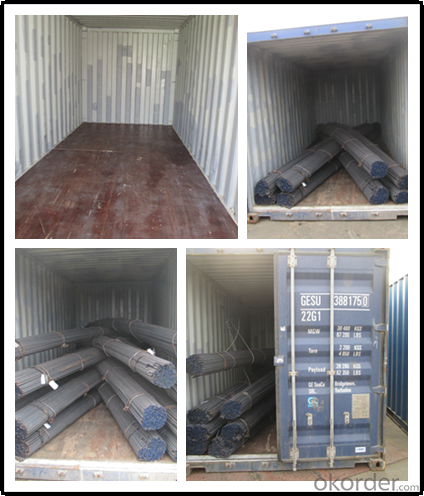
Product Show
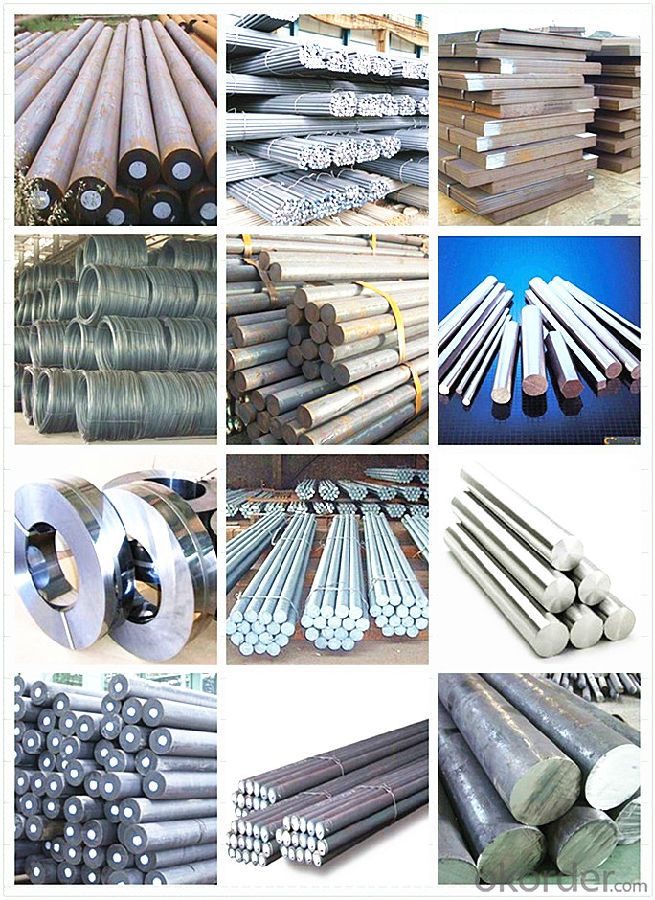
Workshop
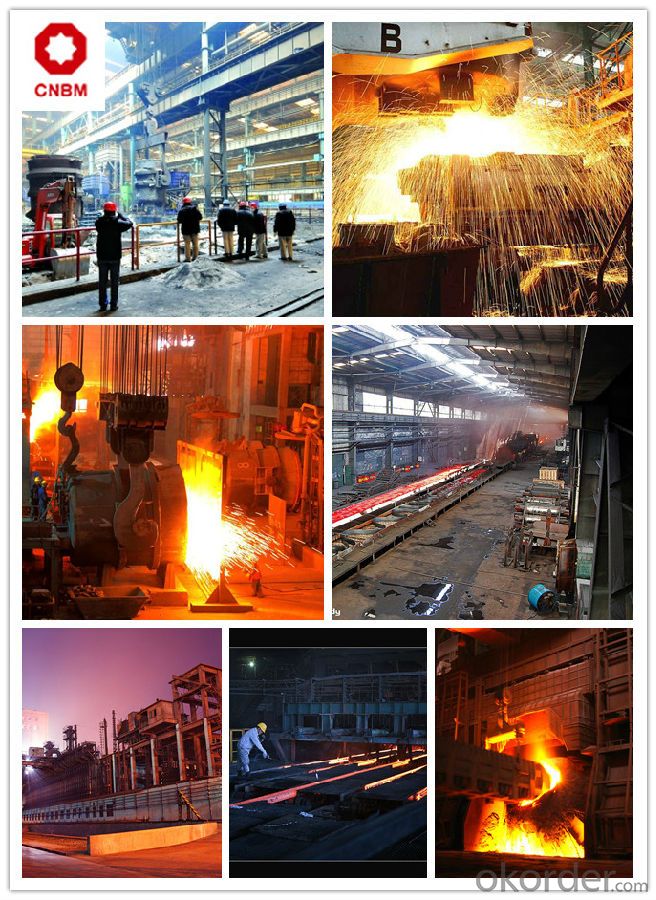
FAQ
Are you a trading company or manufacturer? | Manufacturer |
What’s the MOQ? | 3 metric ton |
What’s your delivery time? | 15-35 days after downpayment received |
Do you Accept OEM service? | Yes |
what’s your delivery terms? | FOB/CFR/CIF |
What's the Payment Terms? | 30% as deposit,70% before shipment by T/T |
Western Union acceptable for small amount. | |
L/C acceptable for large amount. | |
Scrow ,Paybal,Alipay are also ok | |
Why choose us? | Chose happens because of quality, then price, We can give you both. |
Additionally, we can also offer professional products inquiry, products knowledge train (for agents), smooth goods delivery, excellent customer solution proposals. | |
What's your available port of Shipment? | Main Port, China |
What’s your featured services? | Our service formula: good quality+ good price+ good service=customer's trust |
Where are your Market? | Covering more than 160 countries in the world |
- Q:What are the requirements for special steel used in telecommunications equipment manufacturing?
- The requirements for special steel used in telecommunications equipment manufacturing can vary depending on the specific application and intended use. However, there are certain general requirements that are commonly sought after in this industry. Firstly, the special steel used in telecommunications equipment manufacturing should possess excellent mechanical properties, including high strength, toughness, and durability. This is crucial as telecommunications equipment often needs to withstand harsh weather conditions, extreme temperatures, and various environmental factors while maintaining its structural integrity. Secondly, the steel should have excellent corrosion resistance properties. Telecommunications equipment is often installed outdoors or in environments with high humidity, saltwater exposure, or chemical pollutants, which can lead to corrosion. Therefore, the special steel used in manufacturing such equipment should be resistant to corrosion to ensure longevity and reliable performance. Another important requirement is electromagnetic compatibility (EMC). Telecommunications equipment operates in an environment with various electrical and electromagnetic signals. The steel used should possess good electrical conductivity and magnetic permeability to minimize interference and maintain signal integrity. Additionally, the special steel used in telecommunications equipment manufacturing should have good thermal conductivity properties. This is important to dissipate heat generated during operation, preventing overheating and ensuring the equipment's reliability. Furthermore, the steel should be easily machinable and weldable to facilitate the manufacturing process. Ease of fabrication and forming is crucial to meet the specific design requirements of telecommunications equipment. Lastly, compliance with industry standards and regulations is essential. The special steel used in telecommunications equipment manufacturing should meet the relevant international standards and certifications to ensure safety, quality, and compatibility with other components in the telecommunication network. In summary, the requirements for special steel used in telecommunications equipment manufacturing include excellent mechanical properties, corrosion resistance, electromagnetic compatibility, thermal conductivity, machinability, and compliance with industry standards. Meeting these requirements ensures the production of high-quality and reliable telecommunications equipment.
- Q:What are the different high-temperature grades of special steel?
- Some examples of high-temperature grades of special steel include stainless steels such as 304H, 310S, and 316H, as well as heat-resistant alloys like Inconel 600, Hastelloy X, and Haynes 230. These grades are specifically designed to have excellent strength and resistance to oxidation, corrosion, and creep at elevated temperatures.
- Q:How does special steel contribute to the manufacturing of shafts and axles?
- Special steel plays a crucial role in the manufacturing of shafts and axles due to its unique properties and characteristics. Special steel is specifically designed and engineered to have superior strength, durability, and resistance to wear and tear, making it an ideal material for these critical components in the automotive and machinery industries. One of the main advantages of special steel is its high tensile strength. Shafts and axles are subjected to significant loads and torque, especially in heavy-duty applications. Special steel, with its exceptional strength, allows these components to withstand these forces without deformation, ensuring optimal performance and longevity. Furthermore, special steel offers excellent fatigue resistance, which is essential for parts that undergo cyclic loading, such as shafts and axles. Fatigue failure is a common issue in these components, particularly in high-speed rotating applications. Special steel's ability to resist fatigue helps prevent fractures and extends the lifespan of shafts and axles, minimizing downtime and maintenance costs. Another critical property of special steel is its high hardness. This hardness provides superior wear resistance, enabling shafts and axles to withstand the abrasive forces encountered during operation. By reducing wear and minimizing surface damage, special steel ensures the continued efficiency and reliability of these components. Moreover, special steel can be heat-treated to enhance its mechanical properties further. Through processes like quenching and tempering, the steel's hardness, toughness, and strength can be selectively modified to suit specific shaft and axle applications. This flexibility allows manufacturers to tailor the material properties to meet the required specifications and performance standards. In summary, special steel significantly contributes to the manufacturing of shafts and axles by providing exceptional strength, fatigue resistance, hardness, and wear resistance. These properties ensure the durability, reliability, and optimal performance of these critical components in various industries, ultimately leading to safer and more efficient machinery and vehicles.
- Q:Can special steel be used in the mining equipment manufacturing industry?
- Yes, special steel can be used in the mining equipment manufacturing industry. Special steel, such as wear-resistant steel, high-strength steel, or corrosion-resistant steel, is often used in the manufacturing of mining equipment due to its durability, toughness, and resistance to harsh conditions commonly encountered in mining operations. Special steel can enhance the performance and lifespan of mining equipment, making it a suitable choice for this industry.
- Q:What are the characteristics of high-speed steel?
- High-speed steel is known for its exceptional hardness, toughness, and wear resistance. It can withstand high temperatures without losing its cutting ability, making it ideal for applications that involve high-speed or continuous cutting. Additionally, high-speed steel retains its hardness even at elevated temperatures, ensuring prolonged tool life. Its ability to maintain its cutting edge even under extreme conditions makes it a preferred choice in industries such as metalworking, aerospace, and automotive.
- Q:Can special steel be used in the appliance manufacturing industry?
- Yes, special steel can be used in the appliance manufacturing industry. Special steel, also known as alloy steel, offers enhanced properties such as durability, corrosion resistance, and high temperature resistance. These qualities make it suitable for various appliance components, including heating elements, motor shafts, and structural parts.
- Q:What are the applications of special steel in the power generation supply chain?
- Special steels have several applications in the power generation supply chain. They are commonly used in the construction of turbines, boilers, and other critical components of power plants. These steels possess high strength, corrosion resistance, and heat resistance properties, making them suitable for the demanding conditions within power generation facilities. Special steels also play a crucial role in the manufacturing of transmission and distribution equipment, such as transformers and generators, ensuring efficient and reliable power transmission. Overall, the applications of special steel in the power generation supply chain contribute to the development of robust and sustainable energy infrastructure.
- Q:How does special steel contribute to the railway industry?
- Special steel contributes to the railway industry by providing high-strength, durable and corrosion-resistant materials for various components such as rails, wheels, and axles. This ensures the safety and reliability of train operations, as special steel can withstand heavy loads, extreme temperatures, and intense wear and tear. It also enables the construction of lighter and more efficient trains, improving fuel efficiency and reducing maintenance costs. Additionally, special steel is essential for the development of advanced technologies like high-speed trains and magnetic levitation systems, pushing the boundaries of railway transportation.
- Q:What are the properties and characteristics of special steel?
- Special steel refers to a category of steel that has unique properties and characteristics, making it suitable for specific applications that require exceptional strength, durability, and resistance to various environmental factors. Some of the properties and characteristics of special steel include: 1. High Strength: Special steel is known for its exceptional strength, allowing it to withstand heavy loads and extreme conditions. This makes it ideal for applications that require structural integrity and durability, such as construction, automotive, and aerospace industries. 2. Excellent Corrosion Resistance: Special steel is often alloyed with elements like chromium and nickel, which enhance its resistance to corrosion and oxidation. This property makes it highly valuable in environments where exposure to moisture, chemicals, or extreme temperatures may cause conventional steel to deteriorate rapidly. 3. Heat Resistance: Special steel is designed to retain its mechanical properties and structural integrity even at high temperatures. It exhibits excellent thermal stability, which makes it suitable for applications involving intense heat, such as power generation, oil and gas industries, and manufacturing processes. 4. Wear Resistance: Special steel is often hardened and treated to enhance its wear resistance. This property allows it to withstand abrasive materials, friction, and erosion, making it suitable for cutting tools, machine parts, and wear-resistant components in heavy machinery. 5. Magnetic Properties: Certain types of special steel exhibit magnetic properties, which make them ideal for applications in the electrical and electronics industries. Examples include electrical transformers, motors, generators, and magnetic shielding. 6. Machinability: Special steel is designed to be easily machinable, meaning it can be shaped, formed, and fabricated into various components with precision. This property is important for industries that require complex and intricate parts that can be efficiently produced. 7. Cost-effectiveness: Despite its unique properties, special steel is often cost-effective compared to other materials with similar performance characteristics. Its long lifespan, resistance to corrosion and wear, and versatility make it a preferred choice for numerous applications, offering a balance between performance and cost. Overall, special steel combines exceptional strength, resistance to corrosion and wear, heat resistance, and magnetic properties, making it a versatile material used in various industries. Its unique properties make it an essential component in applications where standard steel or other materials would not suffice.
- Q:What are the emerging trends in the special steel industry?
- Some emerging trends in the special steel industry include the increasing demand for high-strength and lightweight materials, the growing adoption of advanced manufacturing technologies such as 3D printing, the focus on sustainability and environmental impact reduction, and the rise of electric vehicles driving the need for specialized steel grades. Additionally, there is a shift towards customization and tailored solutions to meet specific industry requirements.
1. Manufacturer Overview |
|
|---|---|
| Location | |
| Year Established | |
| Annual Output Value | |
| Main Markets | |
| Company Certifications | |
2. Manufacturer Certificates |
|
|---|---|
| a) Certification Name | |
| Range | |
| Reference | |
| Validity Period | |
3. Manufacturer Capability |
|
|---|---|
| a)Trade Capacity | |
| Nearest Port | |
| Export Percentage | |
| No.of Employees in Trade Department | |
| Language Spoken: | |
| b)Factory Information | |
| Factory Size: | |
| No. of Production Lines | |
| Contract Manufacturing | |
| Product Price Range | |
Send your message to us
DIN1.7225/SAE4140 CNBM Alloy Steel Round Bar with Low Price
- Loading Port:
- Tianjin
- Payment Terms:
- TT OR LC
- Min Order Qty:
- 3 m.t.
- Supply Capability:
- 10000 m.t./month
OKorder Service Pledge
OKorder Financial Service
Similar products
New products
Hot products
Related keywords

